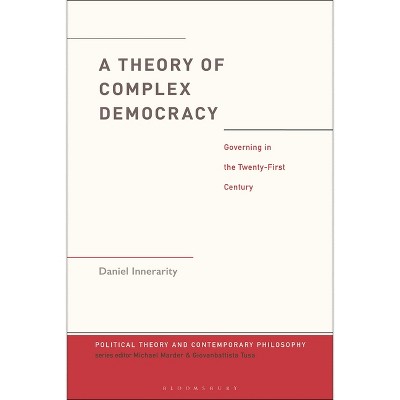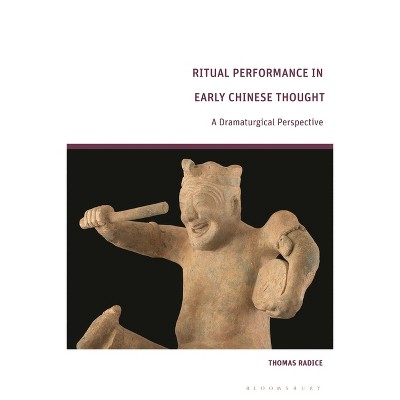Sponsored

Shanghai Mundane - (Challenges Facing Chinese Political Development) by Lei Ping (Hardcover)
In Stock
Sponsored
About this item
Highlights
- This book offers a new critical intervention into the studies of the paradox of Chinese socialism.
- About the Author: Lei Ping is associate professor of Chinese Studies at The New School in New York.
- 336 Pages
- Social Science, Ethnic Studies
- Series Name: Challenges Facing Chinese Political Development
Description
About the Book
Offers a new critical intervention into the studies of the paradox of Chinese socialism. Centering on the "unremodable" Shanghai bourgeoisie and middle class.Book Synopsis
This book offers a new critical intervention into the studies of the paradox of Chinese socialism. Centering on the "unremodable" Shanghai bourgeoisie and middle class, the book brilliantly discovers Chinese society's persistent aspiration to bourgeois lifestyle and remarkable resistance to socialist ideology from the Mao era to the Xi era.Shanghai Mundaneoffers a new critical intervention into the studies of the paradox of Chinese socialism. Through the lens of contested state-society relations, the book challenges conventional China Studies by repositioning Shanghai as the key to decode the protracted ideological warfare between socialism and capitalism. Based on significant archival, ethnographic, and theoretical evidence unearthed from the distinct cases of Shanghai bourgeoisie and middle class, Lei Ping discovers the city's persistent aspiration to bourgeois lifestyle and remarkable resistance to socialist ideology throughout the entire history of the People's Republic of China. Ping argues that despite the socialist remolding of capitalist industry and commerce, the post-1949 Chinese state failed to eradicate bourgeois heritage in the domain of everyday life in the Mao era, which ironically contributed to its controversial policy reversals in the post-Mao era, from Deng to Xi. What lies at the heart of the major intellectual conundrum, namely the survival and revival of bourgeois sentiments, is what Ping calls the "unremodable Shanghai mundane." This captivating and provocative account sheds new light on understanding the larger questions as to the crisis-ridden practices of Chinese socialism and the raison d'être of the Chinese Communist Party in the twenty-first century.
Review Quotes
"The publication of Shanghai Mundane is timely, as the city's fraught experience of Chinese and global modernity promises to shed light on China's current dilemma. The book's themes and arguments are compelling and well-researched, bringing to focus the survival of urban middle-class values and life-forms under revolutionary and post-revolutionary eras. Blending observations on cultures high and low, and juxtaposing ideologies and social positions in radical opposition, the author presents a complex and vivid picture of an ongoing historical drama at the center of the epic struggle for the future of China." --Xudong Zhang, Professor of Comparative Literature and East Asian Studies, New York University, USA
"With analytical rigor and fresh insight, Lei Ping's groundbreaking study charts the evolution of state-society relations in Shanghai from 1949 to the present, including the rise of social media attention economy and the Covid-19 crisis. This book illuminates the resilience of the Shanghai mundane, the limits of state-engineered social transformation, and the enduring human pursuit of openness, dignity, and a better life." --Qin Shao, Professor of History and Author of Shanghai Gone: Domicide and Defi ance in a Chinese Megacity, The College of New Jersey, USAAbout the Author
Lei Ping is associate professor of Chinese Studies at The New School in New York. She has written extensively on China and the global city of Shanghai and served on the editorial board of Journal of Chinese Architecture and Urbanism.Shipping details
Return details
Frequently bought together
Trending Non-Fiction

















